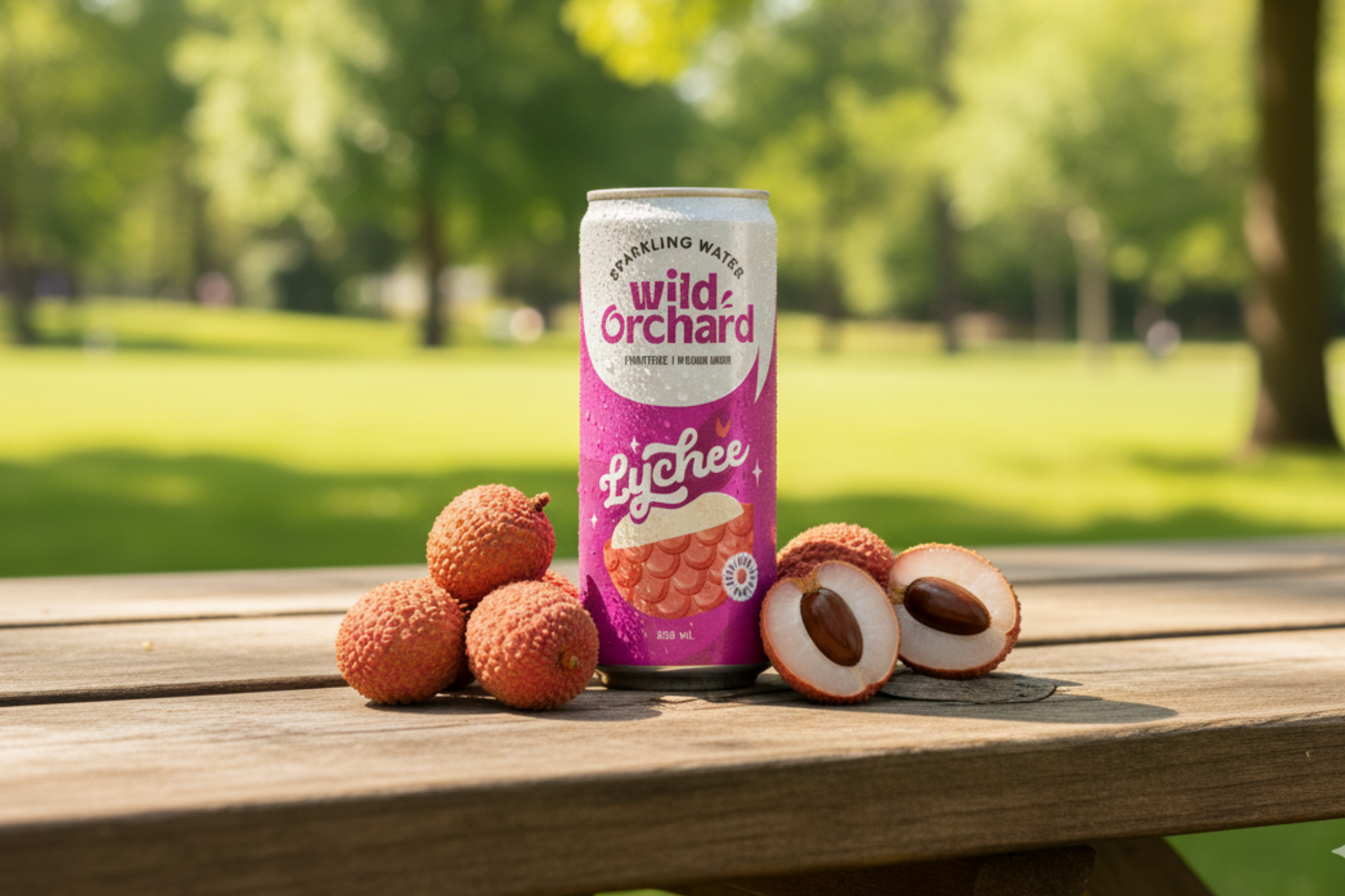Our Thoughts on Beverages with Artificial and Natural Sweeteners
.png)
As a beverage brand focused on clean and simple ingredients, we often get asked, “What do you think about drinks that use sweeteners?” It’s a fair question, especially today, when more and more products claim to be healthy because they’re “sugar-free” or “zero-calorie,” yet still taste very sweet.
At Wild Orchard, we believe people deserve clarity when it comes to what’s in their drinks. That’s why we’ve made a conscious decision not to use artificial or “natural” sweeteners in any of our sparkling waters. This article shares our thoughts on why we made that choice and what you might want to consider when choosing a drink for yourself.
What Are Artificial and Natural Sweeteners?
Sweeteners are used to make drinks taste sweet without adding much sugar or calories. They generally fall into two categories:
- Artificial sweeteners like sucralose, aspartame, and acesulfame potassium (Ace-K), which are made through synthetic chemical processes
- “Natural” sweeteners such as stevia or monk fruit extract, which are derived from plants but still go through heavy processing before being added to drinks
They are commonly used in sodas, flavoured waters, energy drinks, and even beverages marketed as “healthy” or “diet-friendly.”
Why These Ingredients Concern Us
We understand why sweeteners are popular. They offer a way to reduce sugar and calories, and in some cases help people cut back on traditional soft drinks. But from our perspective, there are a few important reasons why we choose not to use them.
1. The Research Is Still Evolving
Some sweeteners have been used for decades, and regulatory bodies consider them safe within certain limits. But newer studies are starting to ask deeper questions, not just about safety but about how sweeteners interact with metabolism and gut health.
For example, a 2023 study published in The Journal of Clinical Investigation found that certain commonly used sweeteners, including sucralose and saccharin, may affect the gut microbiome and influence how the body processes glucose.
This doesn’t mean that every person will experience the same effects, but it does suggest that these ingredients are not necessarily neutral. Our gut bacteria and glucose responses are complex systems, and even small changes can have knock-on effects over time.
2. They May Affect How We Experience Sweetness
Another concern is how sweeteners affect our relationship with sweet tastes. Sweeteners are often much sweeter than sugar by volume, yet they provide no energy. This disconnect between taste and nourishment may confuse the body and potentially lead to increased cravings or overeating.
A study published in the Yale Journal of Biology and Medicine described how regular consumption of non-nutritive sweeteners may condition our bodies to expect calories when there are none. This could affect our appetite regulation.
In other words, drinks that are sweetened but contain no calories might still influence how hungry we feel later.
3. Taste Isn’t Always What It Seems
There is also the matter of taste. Many sweeteners come with a lingering aftertaste, which can be bitter, metallic, or artificial. These notes are hard to ignore, especially if you enjoy beverages with a clean flavour profile.
To compensate for the aftertaste left behind by sweeteners, brands will over compensate by using multiple sweeteners or adding masking agents. This results in drinks that are more complex and heavily processed than they appear.
4. The Health Halo Effect of “Zero Sugar”
The term “health halo” refers to the tendency to overconsume products that appear healthy on the surface. When a drink says “no sugar” or “zero calories,” many people assume it is completely safe to drink regularly.
However, the hidden complexity of sweeteners and their potential impact on metabolism, cravings, and gut function often goes unnoticed. Drinking multiple sweetened beverages a day might not be as harmless as it seems, even if the nutrition label looks clean.
Our Approach: No Sweeteners, Just Real Fruit Juice
We wanted to make a sparkling water that tastes great without relying on sugar, sweeteners, or flavour tricks. That’s why our drinks are made with:
- Carbonated water
- A small amount of 100% real fruit juice
- A tiny amount of natural flavour
- Minimal amounts of citric acid for stability
This approach keeps our drinks naturally low in sugar, usually under 0.5 grams per 100 millilitres, and low in calories, generally under 3 kilocalories per 100 millilitres. Most importantly, it gives our drinks real flavour that doesn’t rely on sweetening agents.
We know that using real fruit juice takes more effort. But to us, it’s worth it. Because we want you to feel good about what you’re drinking, not just today but over time.
Things to Consider When Choosing Your Drink
Everyone has their own preferences, and there is no one-size-fits-all solution. But if you're looking to make more informed choices, here are a few things to keep in mind:
- Read the ingredients list, not just the front label. If you see sucralose, erythritol, stevia, monk fruit, or Ace-K, the product contains sweeteners.
- Notice how your body responds. If sweetened drinks leave you feeling hungrier or cause cravings, you’re not imagining it.
- Explore drinks without sweeteners. You might be surprised by how refreshing they are when they use simple ingredients and no additives.
In Summary
We respect that everyone has different health goals and taste preferences. Our choice to avoid artificial and natural sweeteners comes from a desire to keep things simple and honest. This applies to both flavour and formulation.
At Wild Orchard, we believe real fruit juice, even in small amounts, is more than enough to make a delicious sparkling water. We don’t rely on sugar replacements to do the job. We let the fruit do the talking.
More Insights & Tips

